Wintertime visitors to the province's slopes and springs can spend days skiing and nights soaking, Erik Nilsson reports in Liupanshui and Tongren, Guizhou.
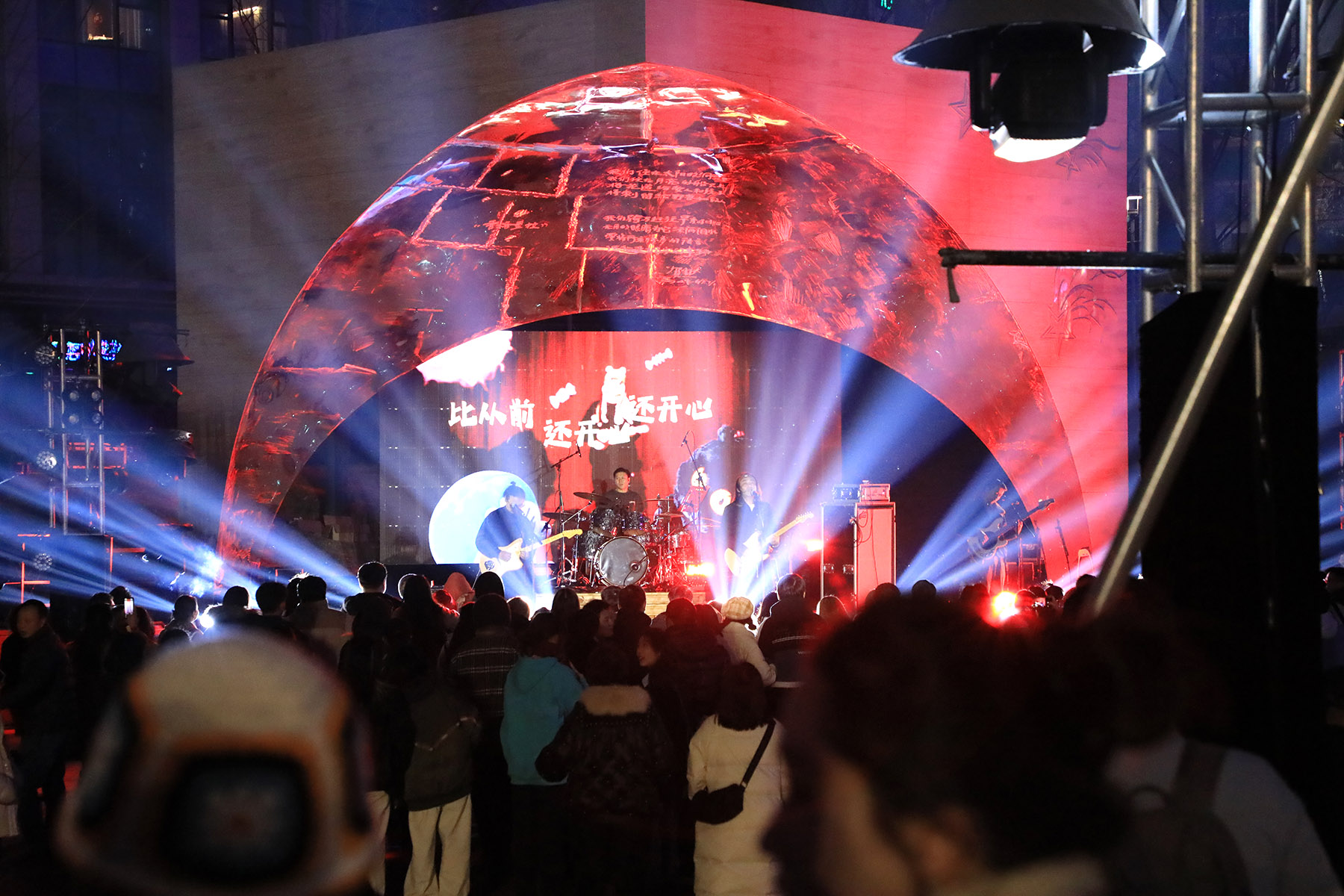
Wintertime in Guizhou province is a time and place where people move to the silent "song of ice and fire".
Bing yu huo zhi ge is a local saying that refers not to literal music but rather to skiing down the slopes followed by soaking in hot springs. Steam seeps from hot pools to infuse the mist that wreathes mountains in these unique landscapes of limestone pits and peaks.
Guizhou has long been celebrated for its scenic skylines sliced by karst blades and whittled into honeycombs oozing with warm water. But the "song of ice and fire" shows that these fantastical formations can be enjoyed beyond their beauty and offer actual activities during the chillier months of the year.
READ MORE: Guizhou is an adventurer's paradise
And even the coldest season isn't really that cold. Rather, the ski trails are known for being relatively cool at around — 2 C — just brisk enough to feel refreshing but not biting in ways that sting your skin. In other words, Jack Frost is present but muzzled in Guizhou's winter sports spots. And this means visitors don't need to bundle into so many layers that they need to waddle when they walk.
Liupanshui city, near the provincial capital, Guiyang, has adopted the slogan "cool city of China" to convey this sense of relatively moderate temperatures year-round. It lures visitors with a summertime marathon event and with winter sports at such spots as Plum Mountain, which is China's lowest-latitude ski resort, at 26 degrees north.
The roughly 1-square-kilometer winter sports destination offers nearly 2,000 total meters of ski runs of various difficulty levels that can accommodate up to 5,000 guests at a time.
Newbies, finding their snow legs on the bunny hill, wear not only the regular regalia but can also fasten plush pink pandas or green turtles to pad their backsides and knees. These cute accessories come in handy when roughly as many novices fall as ski downhill, not only cushioning their landings but also keeping their lower halves a bit drier.
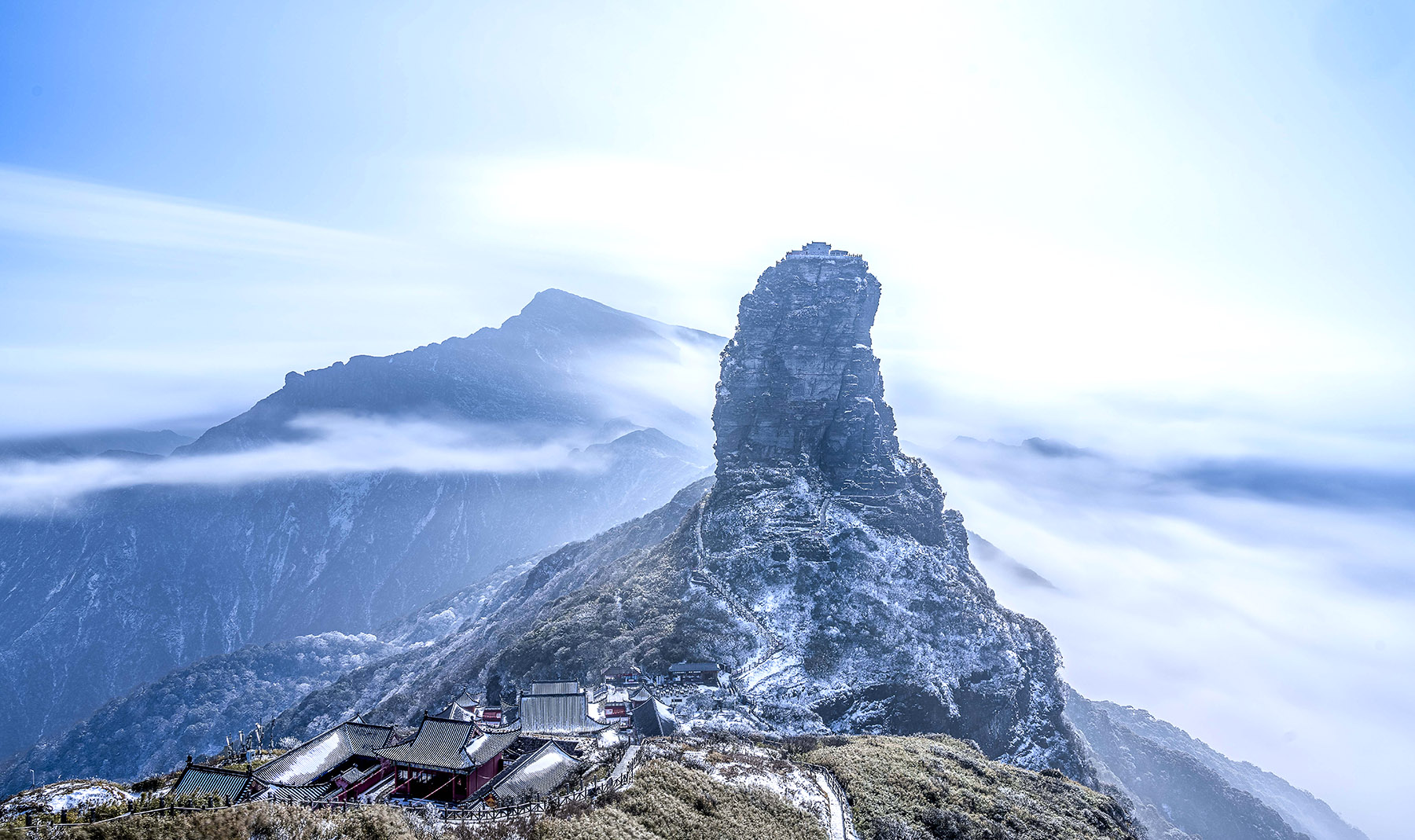
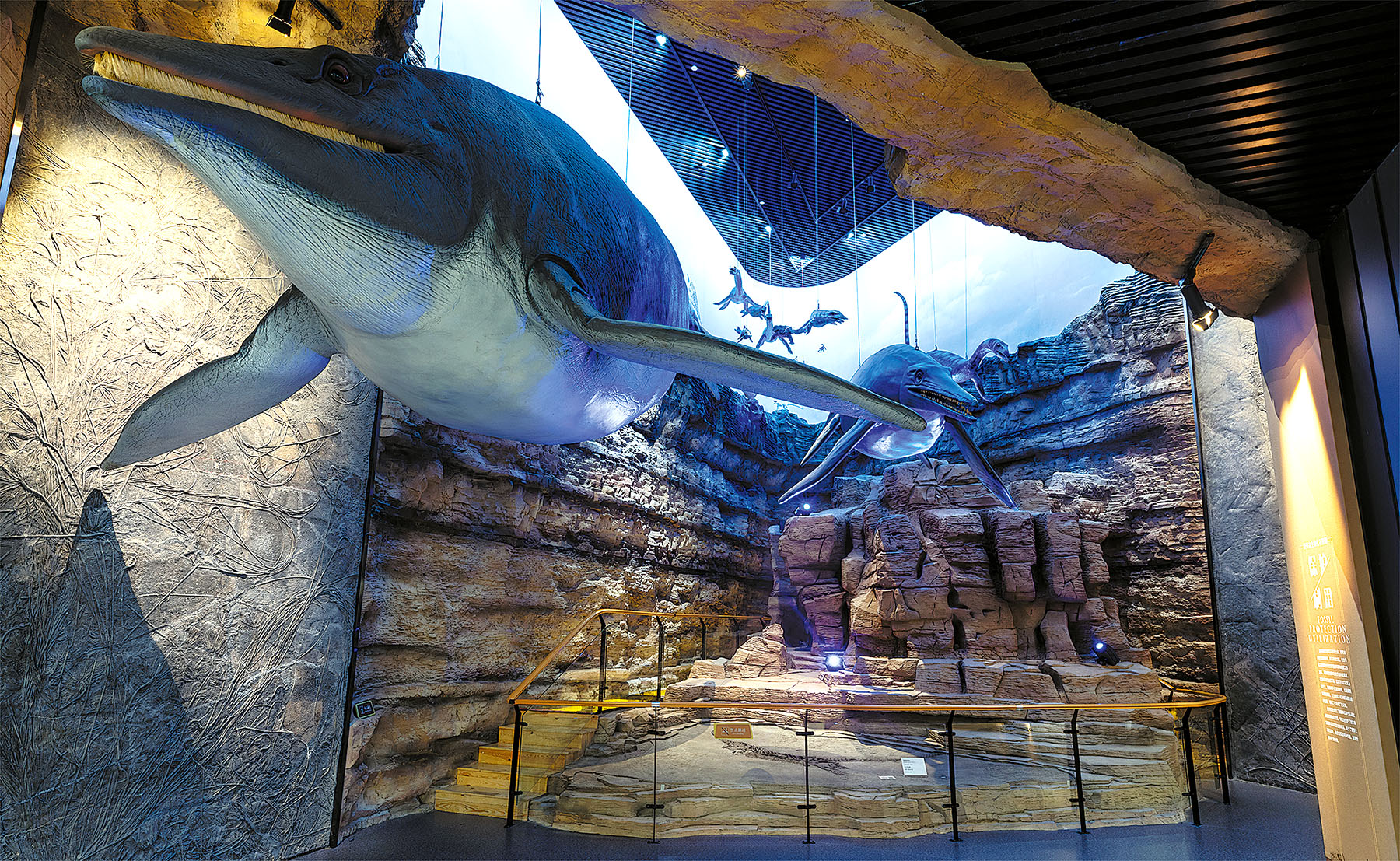
The resort hosts competitions, nighttime events and "snow discos "throughout the winter, and hopes more international visitors will participate since Guizhou recently adopted a new 240-hour visa-free
Wintertime visitors to the province's slopes and springs can spend days skiing and nights soaking, Erik Nilsson reports in Liupanshui and Tongren, Guizhou.travel policy for visitors from eligible countries.
Skiers can thaw out in one of the more than 300 hot spring clusters that pock Guizhou's undulating limestone landscapes, such as Liupanshui's Baichehe Hot Spring Resort Hotel.
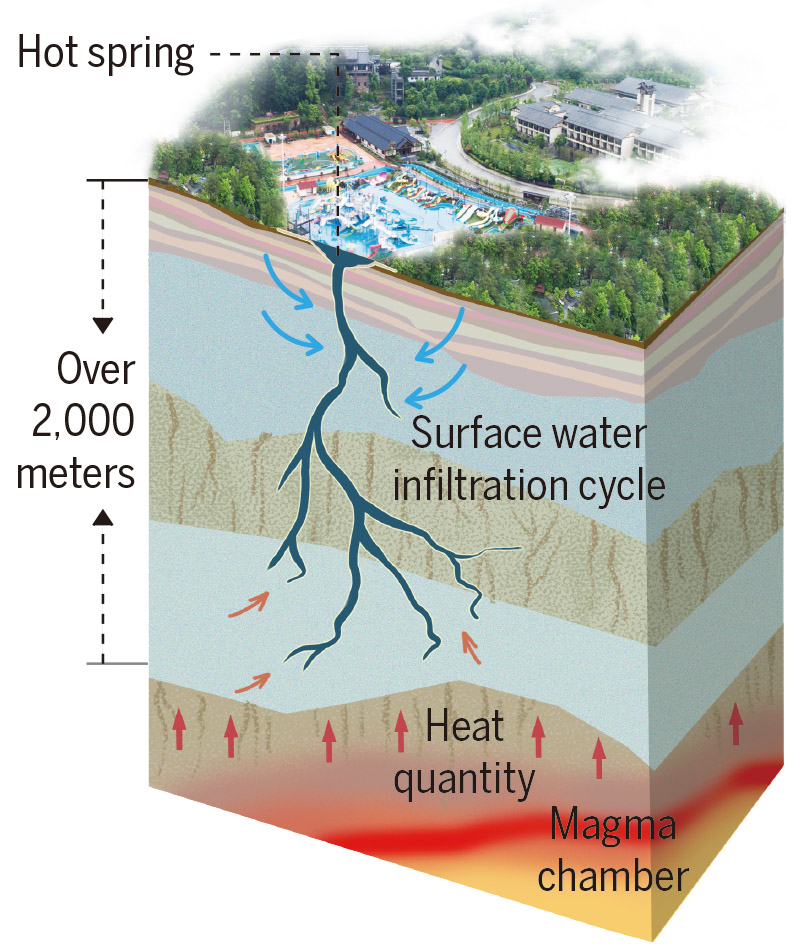
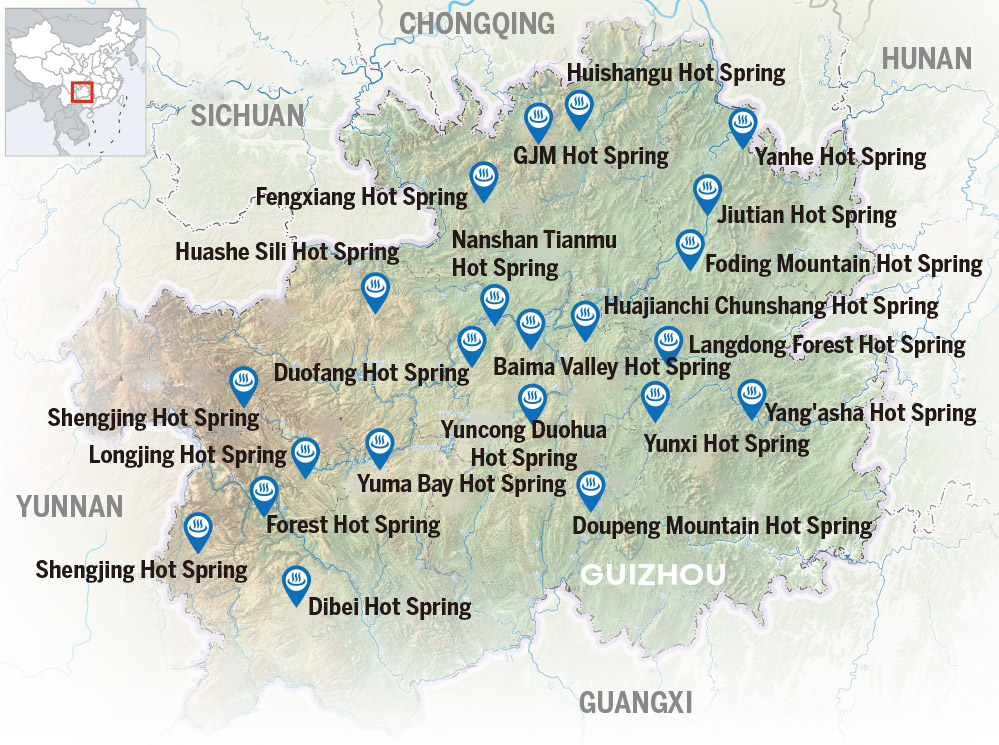
This 27-hectare AAAA attraction features dozens of indoor and outdoor pools that are not only potable but also are said to contain 18 trace minerals, including selenium, copper and strontium, purported to possess myriad health benefits.
A particularly entertaining feature is a large indoor geothermal pool partly bisected by a walkway leading to a stage for performances and karaoke.
Nearby, the Foding Mountain Hot Spring Town in Tongren's Shiqian hosts over 60 pools of warm water that exhale vapor into the forests that cling to its karsts.
The untreated water is also drinkable and is sold as a bottled brand. It's also used to steep tea and make broth for meals served at the resort. However, they have discontinued the practice of boiling eggs in the actual hot springs.
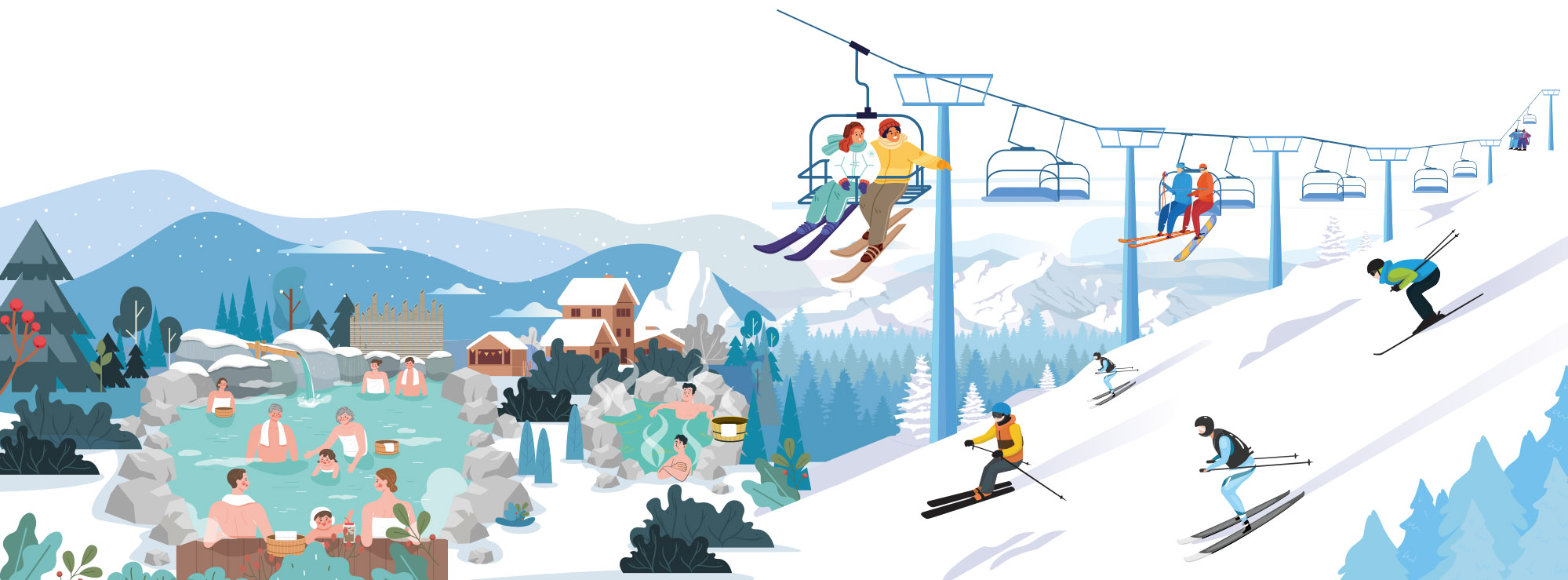
Various pools are instilled with such substances as rose petals, green tea and milk. Perhaps especially unique are springs that churn with Sichuan peppercorns or with the main base of Guizhou's most famous dish, "sour soup", especially as this pool is brimming with floating toy vegetables like plastic eggplants, corn and garlic.
Visitors also heal their skin with special facial masks and exfoliation treatments in which guests sit in water while swarms of minnows peck dead skin off their feet.
ALSO READ: 'Traveling in China' trending on social media
Guizhou's hot springs offer ideal locations to melt away cold and stress and to dissolve into the sometimes-unexpected specialties of local culture.
As such, visitors will find that dipping their toes in these pools is to take the final steps of the dance of the "song of ice and fire" that gives rhythm to winter in Guizhou.
Contact the writer at erik_nilsson@chinadaily.com.cn


